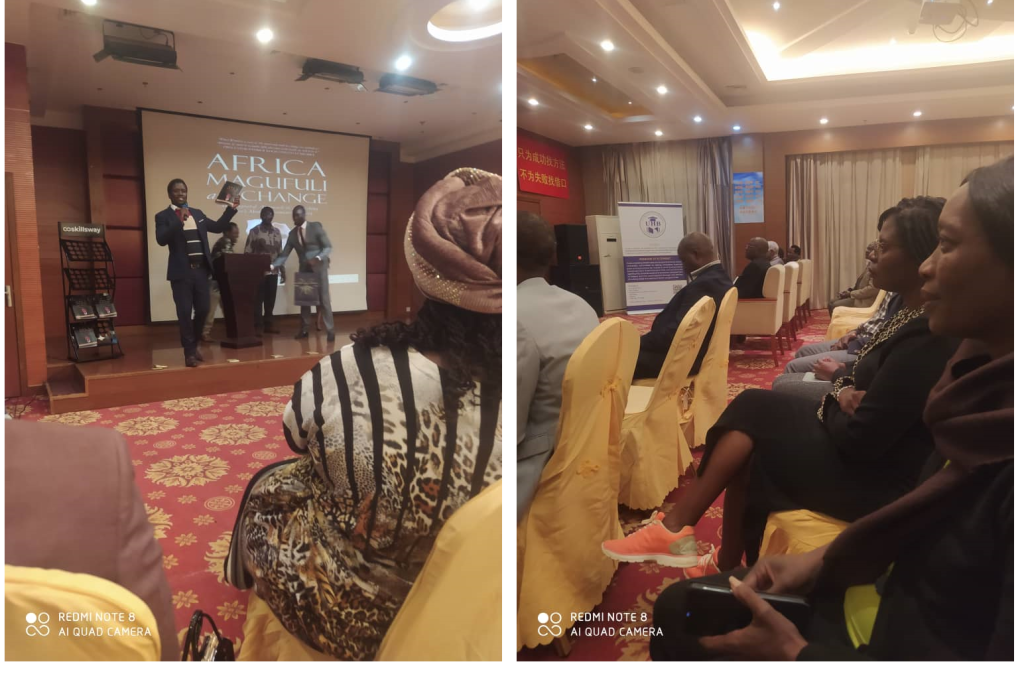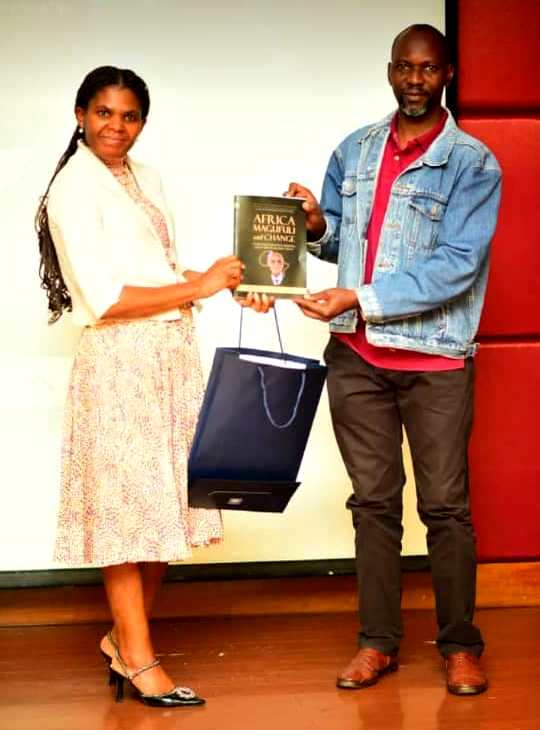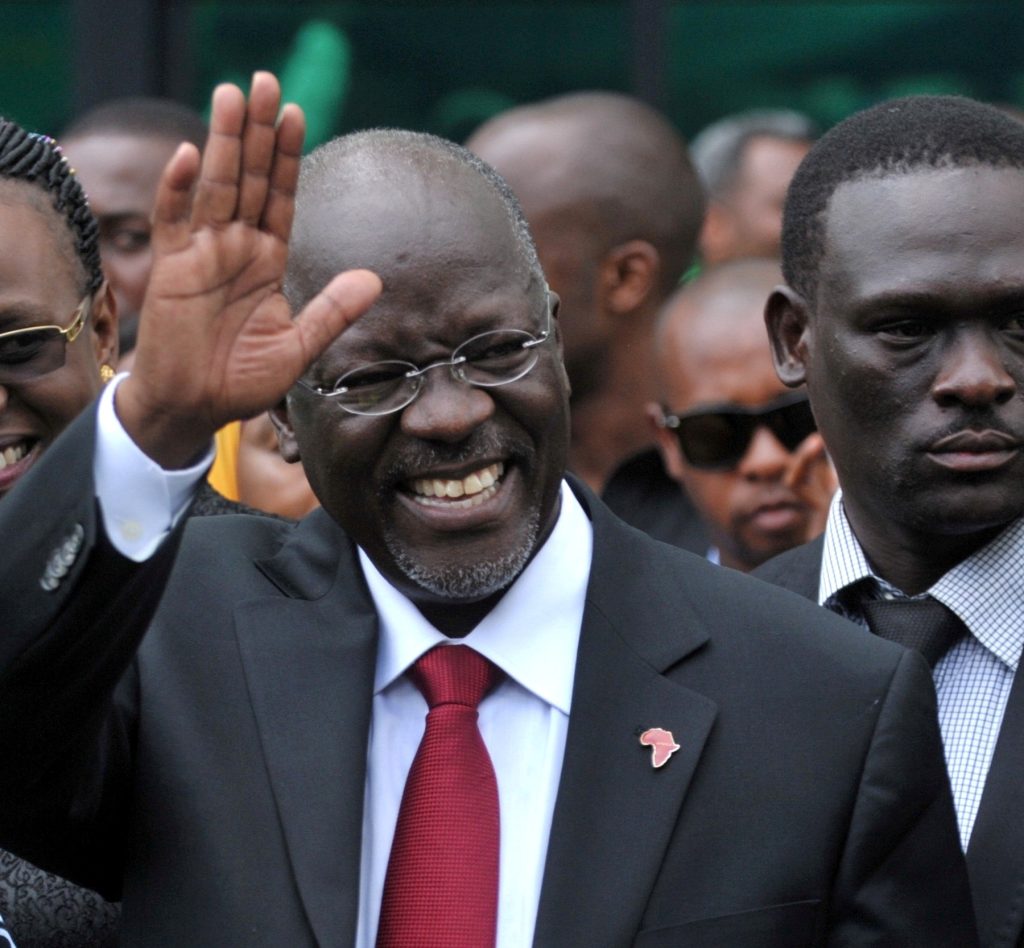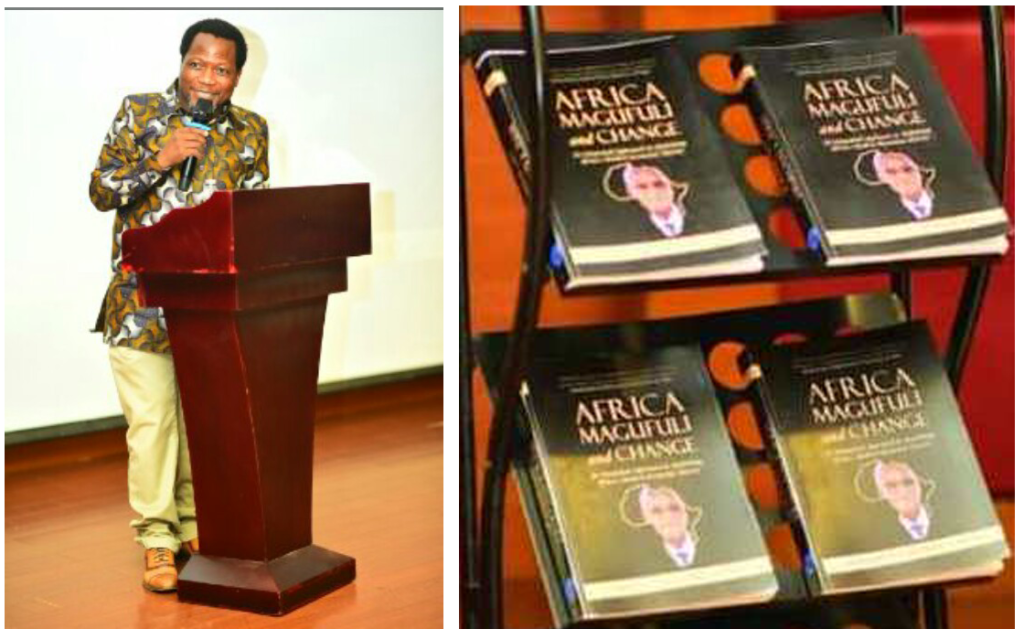
By TZBN Correspondent, Lilongwe
Africa, Magufuli and Change, the blockbuster publication to honor the Late President John Pombe Magufuli of Tanzania has been received well in Malawi. The first copy of the book was auctioned off at USD 600 (Tsh 1,450,000 using the June 30, 2023 exchange rate when it was sold).
The 461-page volume, written by Malawian University Lecturer, Prof. Malango Chinthenga from the University of Hebron in Lilongwe, is described in its Forward as “a must read” for all people concerned with development work”.
The Guest of honor at launching held at Golden Peacock Hotel in Lilongwe was Dr Grace Kumchulesi, Director of Planning at Malawi’s National Planning Commission.
“Africa, Magufuli and Change: An Integrated Approach in Abolishing Africa’s Modern Economic Slavery” is “an amazing project and I am privileged to be invited at such a prestigious occasion”, the Guest of Honor remarked. “Personally, I liked Magufuli and He transformed Tanzania within a very short period because of his high level leadership discipline. I congratulate Professor Malango Chinthenga for pioneering the work through this insightful publication’, she said.

The launching event started by playing the national anthems of Tanzania and Malawi. The University of Hebron student union president delivered a speech and a poem. Professor David Kamchacha who has also written the foreword of the book made a presentation articulating the artistry of the book.
The author, Prof. Chinthenga, made a speech prior to the Guest of Honour and later came the auctioning of the book. The first bidder paid about USD 600 for the book. Prof. Chinthenga said the book took him 5 years to complete.
The book reviewer, Prof. David Boston Kamchacha, says the book will help those who are studying development economics as well as development studies in various universities and colleges. It should also help politicians.
Early chapters of the book create the genesis for its later argument that the Late President John Pombe Magufuli is the best example of the kind of leadership Africa needs at this point in time.
“The book…has shown that Africa has the capacity and resources to develop at the same pace, if not faster, than its colonial masters who continually and subtly want to keep Africa as slaves in a modern time,” Dr. Kamchacha says in his forward.
“Colonialism has impacted Africa’s pattern of thoughts and trends of cultural development to an extent that Africans think the best things are from the Western world. It has become so clear in this book that neo-colonialism contributes to the challenges of Africa’s development and one would actually relate Africa’s development …to premeditated imperialism to keep Africa at the bottom of the pyramid,” Dr. Kamchacha reports in his forward.
After a tearful description of the woes of colonialism, imperialism and slavery as experienced in Zanzibar, Prof. Chinthenga ushers in Africa’s solution which should largely hinge on self reliance –the direction in which President Magufuli was attempting to lead Tanzania into before his untimely death.

In Chapter seven, the author uncovers the development crisis facing Africa—which could be the starting point for Africa to rethink her strategy. He also identifies tribalism and nepotism as serious hindrances to Africa’s development.
In chapter 10 the author identifies donor dependency as ‘a killer insulin’ for Africa. In this chapter, the author explains why “self reliance in itself is a good thing”.
Magufulification of Africa is presented in Chapter 23. The book has beautifully ended with Chapter 48 in search of a new Magufuli, the reviewer says. And in this chapter, the author depicts the continent as deficient in Magufuli thought, ending the book with a wish for a new Magufuli for whom “we can not wait to find one”.




